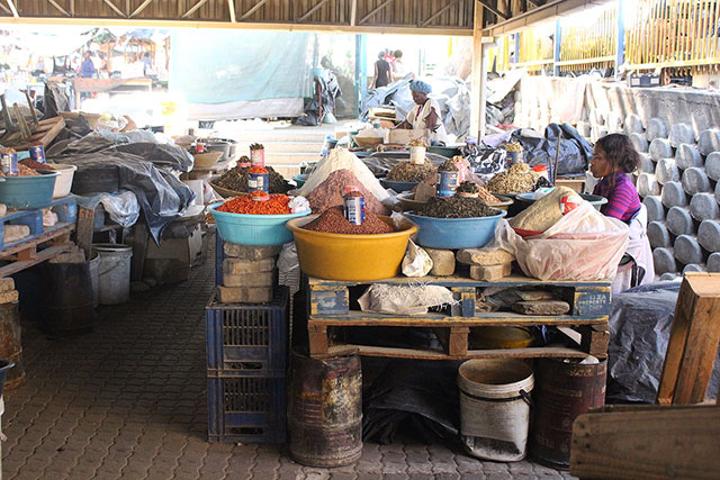Africa-Press – Namibia. SMALL businesses have expressed disappointment over how commercial banks are rolling out the relaunched N$500 million Small and Medium Enterprise (SME) Economic Recovery Loan Scheme.
Some small businesses feel they are are sidelined, while others are offered commercial bank products and not the less stringent scheme.
The Ministry of Finance and Public Enterprises and the Bank of Namibia (BoN) last month relaunched the N$500 million loan scheme for eligible enterprises.
This was set up in collaboration with commercial banks, the ministry and the central bank to reform the former Covid-19 SME Loan Scheme to accommodate SMEs which struggled to meet the qualifying criteria at commercial banks.
The loan scheme provides loans ranging from N$50 000 to N$10 million to SMEs with an annual turnover not exceeding N$60 million.
SMEs can apply through banks such as FNB Namibia, Bank Windhoek, Standard Bank Namibia and Nedbank Namibia.
BoN spokesperson Kazembire Zemburuka this week said the central bank is in contact with commercial banks to ensure SMEs benefit from the government’s small business loan scheme.
Zemburuka was responding to complaints by the Black Business Leadership Network of Namibia (BBLNN), which also raised concerns over the implementation of the scheme.
The BBLNN has accused commercial banks of sidelining black-owned small enterprises applying for loans through the loan scheme.
Zemburuka said the BoN is aware of “some teething challenges” experienced at the start of the loan application process due to misinterpretations of the criteria and eligibility of SMEs at some participating commercial banks.
“These are being attended to with the relevant banking institutions to ensure our SMEs can take full advantage of the scheme to revive their businesses.”
However, BBLNN president Irene Simeon-Kurtz last week told the media the network was planning to meet with the BoN and the Ministry of Finance about “discriminatory practices” of commercial banks against black-owned businesses.
Simeon-Kurtz said the network has received complaints from members with regard to accessing loans under the SME Economic Recovery Loan Scheme.
She said banks are rejecting loan applications by mostly black-owned businesses.
“The feedback we are receiving is that black entrepreneurs are being sent away,” she said.
Although criteria have been revised to accommodate all SMEs, the banks insist that normal banking terms and conditions apply, she said.
“The BoN set certain criteria, but when banks add their terms and conditions, the recently launched scheme excludes most black businesses, as well as youth and women-owned SMEs.
“We will start to challenge the banks to disclose who qualified from the government loans which are managed by their SME desks,” Simeon-Kurtz said.
“The BoN’s terms of reference for allocating these loans of funds to banks were reviewed and amended to ensure they include a set of criteria and a formula that prioritises black businesses, black youth and women-owned businesses.
“We need a task team that will work closely with the BoN and treasury to monitor and track how these loans are disbursed to determine whether black businesses indeed participate.
“As things are right now, we will have to set up an urgent meeting with BoN and treasury to table our concerns,” she said.
Zemburuka, however, said the scheme is yet to be rolled out fully at all participating commercial banks, including the Development Bank of Namibia.
“Since the new scheme has been revised substantially, participating institutions are readying themselves to deliver exceptional service to the SME sector by training staff and putting all logistics in place.
“These banks will announce separately to the public when the product is fully offered,” he said.
To maximise small business participation, Zemburuka said the revised scheme was enlarged to accommodate struggling SMEs to pay for operational expenses such as salaries, rent and lease agreements, and contracts with suppliers.
“To make maximum use of the facility, SMEs are encouraged to familiarise themselves with the requirements and features of the loan.
“Ultimately, the scheme is implemented to promote economic growth and recovery while boosting job creation and contributing to the country’s well-being,” he said.
BANK WINDHOEK
Yesterday, Bank Windhoek announced it has finalised arrangements relating to issuing loans under the scheme.
Bank Windhoek’s executive officer of business banking, Leon Koch, announced that the arrangements would allow Bank Windhoek to extend loans to qualifying SMEs at the prime lending rate less 0,5%.
“The obligation to pay the interest and capital on these loans will be deferred for six months from the day of signing the agreement,” Koch said.
The economic slowdown since 2016 severely impacted businesses and SMEs specifically, and the government created the scheme to assist them during challenging financial situations.
Koch said an SME client should have an existing relationship with Bank Windhoek through lending or transactional banking.
“They should also be a registered business entity with the Business and Intellectual Property Authority, including a sole proprietorship.
“The customers should also have a maximum annual turnover not exceeding N$60 million per annum,” he said.
Koch said to qualify for assistance, the applicant must not have previously participated in or have any existing SME Economic Recovery Loan with Bank Windhoek or any other financial institution.
For More News And Analysis About Namibia Follow Africa-Press






